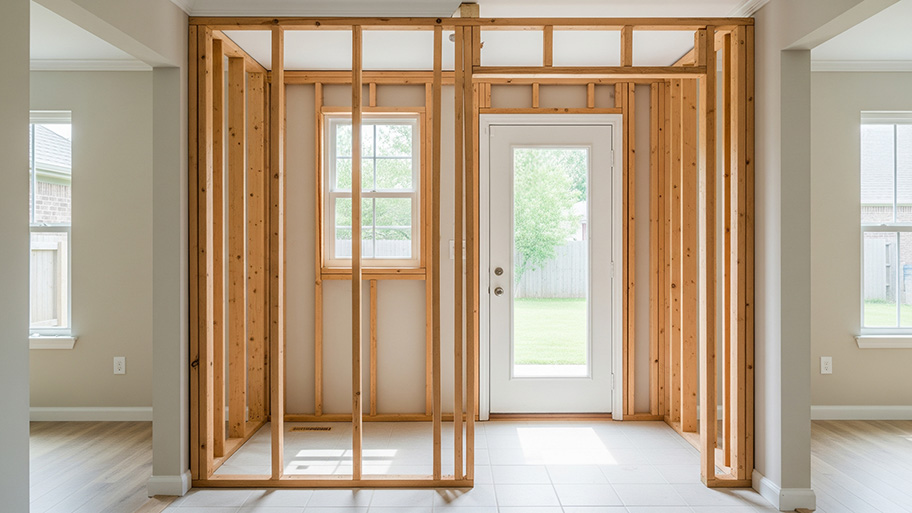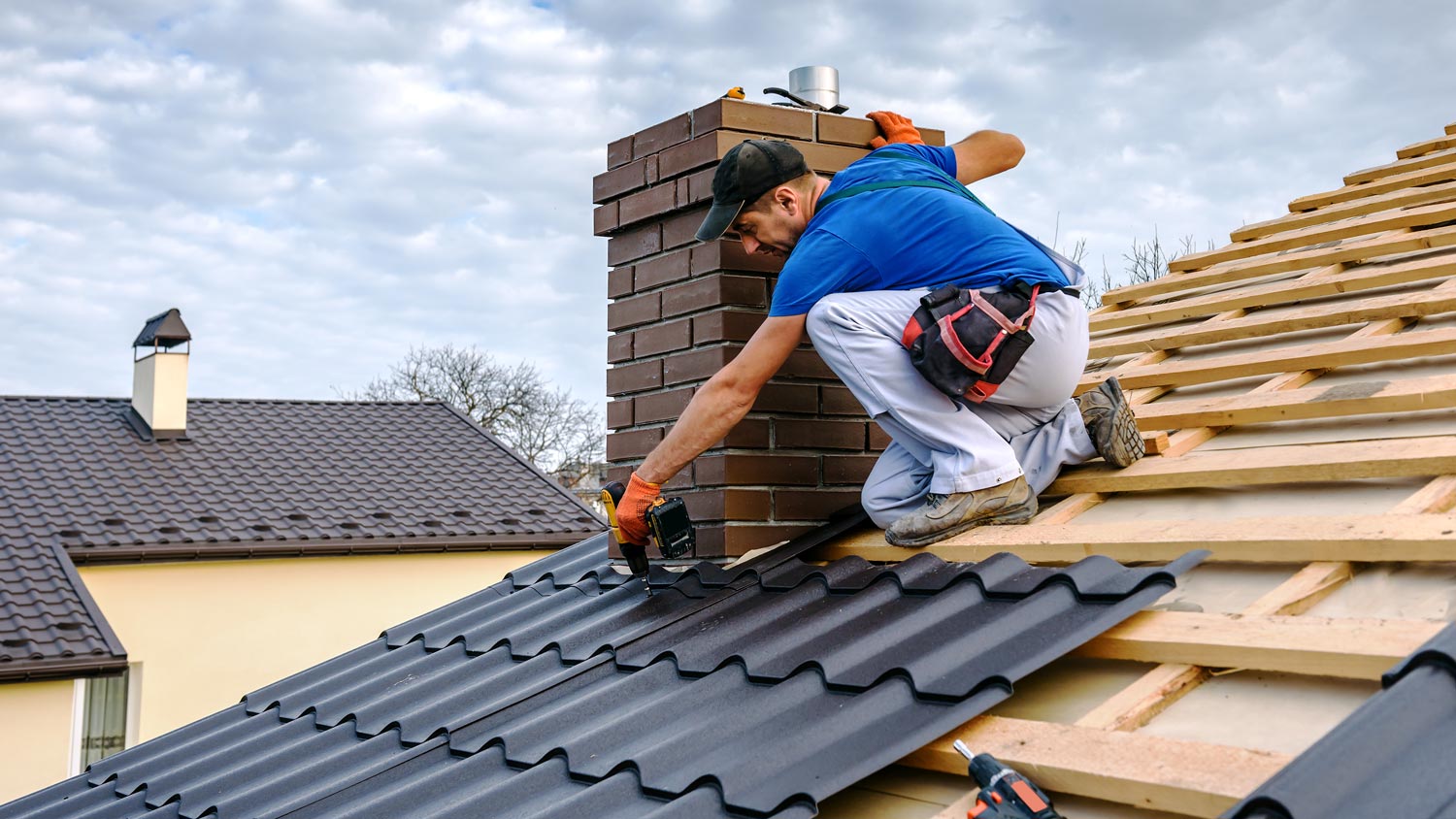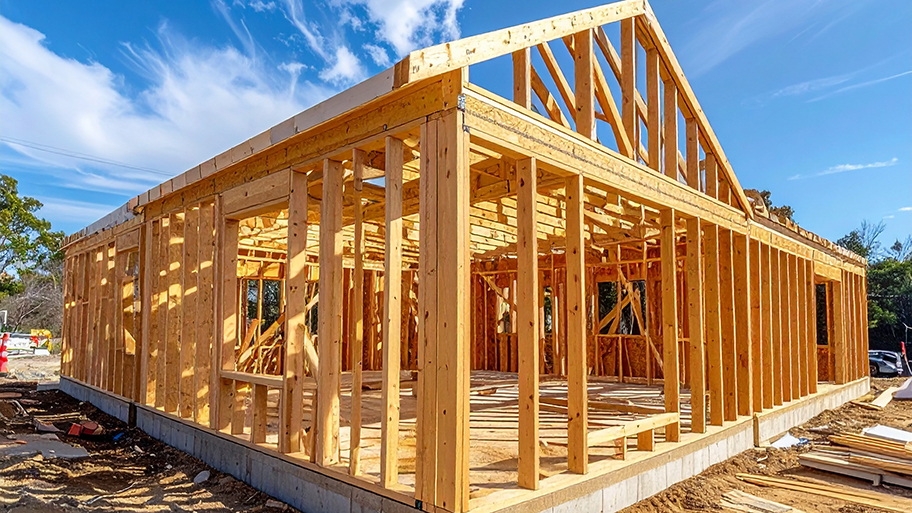
Sometimes, all your home needs is a new wall to make a room or provide an updated function to an existing space. Learn how much it costs to install a new wall.
A bit of paperwork might be the key to a successful project


Building permits are required for a large range of major home renovation projects
Some seemingly small projects, such as plumbing and electrical changes, also require a permit
While contractors often pull permits before the project begins, others leave this to the homeowner.
Many decorative or non-structural changes can move ahead without a permit
Renovating, remodeling, and building all signify the exciting start of something new in your home. However, it’s not all fresh paint, tile, and fixtures—you’ll also need to do some homework around any required permits for your project. While the rules and regulations about building permits vary depending on where you live, one thing is the same no matter where you go: skipping out on getting a building permit is a bad idea. Let’s break down what a building permit is, why you need one, how to get it, and the risks you face if you decide not to get a permit.
A building permit is an authorization form issued by local officials. This authorization is needed before you start any construction, be it a renovation or a build from the ground up.
On the 18th day of every month, the U.S. Census Bureau shares the total number of construction projects taking place. They can only report construction that has been authorized through a building permit.
That matters because lots of important folks watch that list. It’s a major economic indicator, as more projects happening means money is moving within the economy. That useful metric is part of why building permits are essential, but it’s far from the only reason.
Completing a project without a permit could result in major fines or having to tear it down and start over. A reputable contractor can pull the necessary permits for you prior to starting a project.
Being given a building permit means you and the contractors you hire agree to comply with zoning laws and construction ordinances.
When you follow those guidelines and ensure everyone on the site does, too, you are protecting them, yourself, and the house as a financial asset. Abiding by the building permit standards means you’re all staying as safe as possible.
Avoiding any shortcuts in building or construction can prevent damage to your project and may protect your resale value later. Having building permits means that a code-enforcement inspector will visit your site and sign off on things like framing, plumbing, electrical, or other work, guaranteeing it all meets code. "By having an inspector overseeing the work, you aren’t fully relying on your contractor and have additional oversight," said Matt DiBara, Expert Review Board Member and Owner of DiBara Masonry.
Not every project around your home requires a building permit, as you can usually do more “minor” tasks without one. If you put in a new lighting fixture or paint a room, you don’t have to apply for permits. Which projects require permits depends on the codes in the area where you live, so it’s always best to do your own research. Typical examples of projects that require building permits include:
Building or removing walls (i.e., structural changes)
Converting a garage to a guesthouse
Altering your home's internal plumbing
Replacing or making major repairs to your roof
Altering wiring or making electrical changes to your home
Demolishing any portion of your home
Building a porch or a patio
Screening in an existing porch
Altering or replacing siding on your home
Installing a pool or making structural changes to the poolscape
Building a retaining wall
Building or extending a fence (in some cases)
Rest assured that not all projects require building permits. Non-structural changes and renovations that avoid work on your wiring, plumbing, or HVAC can typically advance without the city's approval. Some examples include:
Interior painting
Installing DIY flooring
Finishing the floors
Tiling the floors or countertops
Refinishing the cabinets
Staining the porch or patio
Extending your garden
Replacing a door or window
Some small or temporary fences
Deep cleaning and power washing
Installing shelves and storage systems
Replacing plumbing or lighting fixtures
There are several risks if you don’t get a building permit. Firstly, it’s a great way of vetting your contractors. If a contractor refuses to file for building permits, it could indicate that they are unlicensed and, thus, not someone you want tackling this project for their safety and your home.
Building without a permit is a violation of the law. If you do it, you could face severe fines and fees. You might even have to tear down your project should you skip the important step of getting a building permit.
In some cases, selling your home with unpermitted work can cause issues at the sale and result in major credits to the buyer or even loss of the sale altogether, says DiBara. Many code violations resulting in non-permitted work don’t have an expiration date and can surface years down the road when other work on the home is being done.
In addition to fines, many insurance providers won’t cover projects without a building permit on record. That leaves you in a serious situation should your project or anyone working on it experience damage.
Each area is going to handle issuing building permits slightly differently. For example, pulling permits for a home addition will vary depending on where you live. The U.S. General Services Administration should be able to direct you to the appropriate guidelines for where you live. That said, here’s what the process looks like generally, so you’ll know what to expect:
Fill out a permit application: Once you’ve identified what’s required, gather your materials and file your application in person or online.
Get your site plan ready: This means hiring a contractor or architect to do design drawings so you can make it clear the project will meet building and zoning codes.
Schedule a plan approval meeting: Depending on the size and scope of your project, this can take weeks or months. The process becomes longer if the submitted site plans need revisions to meet code.
Get the physical permit: Do this before you build anything.
Schedule inspections: When you file for a permit, you agree to allow permit professionals to inspect the site. It’s not optional.
Complete your project: That doesn’t just mean a final coat of paint; it means getting an official sign-off from all the appropriate authorities.
Reach out to your local department of buildings to get more information on the specifics of the building permit application process.

Typically, the contractor you hire is responsible for applying for the building permits required. You may hear contractors refer to this as “pulling” the permits—this means applying for them.
The person who files for the permits for your build is responsible for making sure everyone abides by them. You can do it yourself, but if you have hired a contractor, you trust them, and they are more well-versed in construction and the building permit process itself.
That said, because contractors work hourly, you might want to take on the permit process to save some money. Of course, if the project is huge and you have no experience, you could make your life a lot more complicated. No matter who applies, the homeowner pays for the building permits.
From average costs to expert advice, get all the answers you need to get your job done.

Sometimes, all your home needs is a new wall to make a room or provide an updated function to an existing space. Learn how much it costs to install a new wall.

The cost to frame a house can vary depending on the size of your home, the structure you’re building, and your materials. Keep reading to learn how much framing your house might cost.

Brick walls can add character and elegance to interior and exterior spaces. Use this brick wall cost guide to see the price range for adding one to your home.

Ready to dive into that home reno but tight on funds? Learn all the different ways to finance home renovations to get your work underway and stay on budget.

Learn about the pros and cons of hiring a general contractor to handle your home renovation project and why research to find the right one matters.

Many homeowners are unsure about tipping contractors, and if so, how much. This quick guide will help you understand whether you should tip.